-
•
•
29 responses
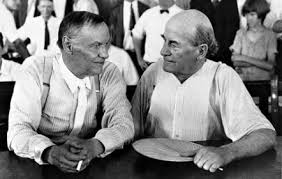
I read Edward J. Larson’s Summer for the Gods: The Scopes Trial and America’s Continuing Debate Over Science and Religion (Harvard Univ. Press, 1997) earlier this month, and was surprised to see the Book of Mormon appear in one of Clarence Darrow’s arguments to the court. Funny how little mention there is of the Scopes Trial in LDS discourse, given how often evolution seems to come up. I have some ideas on that. But first the interesting arguments made to the court by Darrow. Read More
-
•
•
4 responses
Abraham’s readiness to sacrifice Isaac is one of the most difficult to understand episodes in the Bible, and it is also a regular subject of LDS lessons, such as Lesson 9 of the Old Testament Gospel Doctrine manual. Despite its troubling nature, this event is seen as a clear type of Christ’s sacrifice, and it is often portrayed as an ideal of the righteous sacrifice we should ourselves be willing to make. Both of these views of Abraham’s dilemna appear in LDS poetry, and the latter view—that we too are expected to sacrifice for sake of the gospel—is expressed in… Read More
-
•
•
7 responses
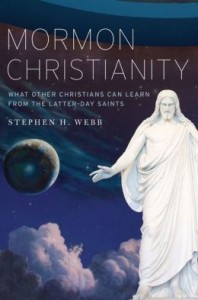
Stephen H. Webb’s Mormon Christianity: What Other Christians Can Learn From the Latter-day Saints (OUP, 2013) has a lot to offer both LDS and non-LDS readers. My acquaintance with Amazon titles on Mormonism makes me think it would have attracted a much larger non-LDS readership had it been titled How I Escaped From Mormon Christianity. Happily for mainstream LDS readers, the book is listed at Deseret Book, where an author search under “Webb” sorted by popularity puts the book just above Melodie Webb’s 250 Ways to Connect With Your Family and just below the ebook version of Isabelle Webb’s The… Read More
-
•
•
One response
The story of Sodom and Gomorrah, which is found in the material covered in the Old Testament Gospel Doctrine manual, lesson 8, is one of the more bleak stories in the bible. Its depressing to think that a city cannot be saved from its own wickedness, and that there was not one person there who was innocent enough to merit its salvation. Regardless of what their sins were (lets not go into that), the destruction of an entire city is heartbreaking. I think the following poem captures some of the pathos and the meaning that can be found in the… Read More
-
•
•
If doctrines can have ideological parents, then the doctrine of the gathering is clearly descended from the Abrahamic covenant, the same that is discussed in Old Testament Gospel Doctrine lesson 7. Throughout the scriptures, when the Lord talks of “gathering” his people, he is refering to Israel, the descendants of Abraham. The covenant speaks of giving his people a promised land—the place where his people will be gathered to. Indeed, the gathering is simply a part of how the Lord’s covenant with Abraham is fulfilled. I think that many of the elements of the Abrahamic covenant are found in the… Read More
-
•
•
One response
When we cover the sacrament in our lessons, the focus is usually on the doctrines behind the ordinance. In lesson 6 of the Teachings of Joseph Fielding Smith manual those doctrines are found in remembering the atonement and in the covenant made at baptism and renewed by the sacrament. However, I think there is a bit more to the role of the sacrament and sacrament meetings than these doctrines—social meanings that might be found in the following two poems. Read More
-
•
•
One response
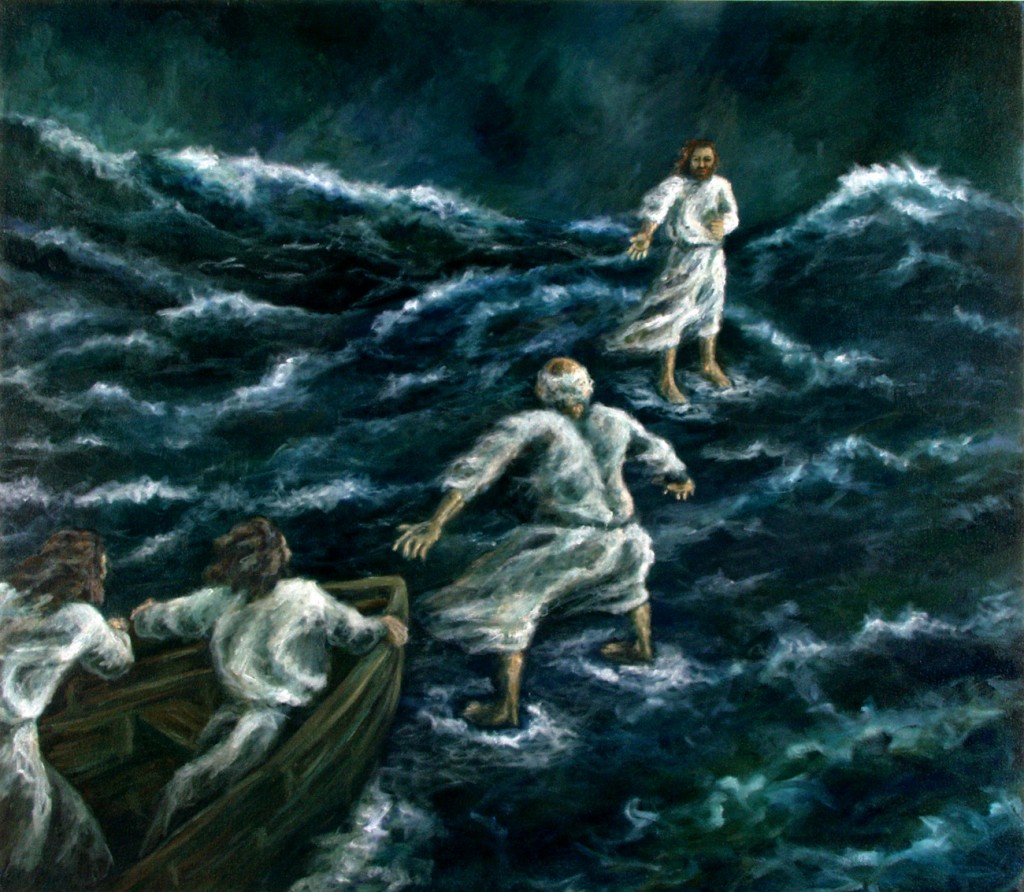
When we talk about faith in Mormonism, we often emphasize the idea that the important part of faith is not just belief in something true, but faith in Jesus Christ. And while we use lots of examples of faith, sometimes those examples leave out the role of Christ in our lives and in our faith. The Teachings of Joseph Fielding Smith manual lesson #5 explores both faith and repentance, including the role of Jesus Christ in each. So the following poem seemed to fit very well. Read More
-
•
•
One response
Lesson 6 of the Old Testament Gospel Doctrine manual seems like a difficult lesson to me. It covers both the story of Noah and the flood as well as the story of the tower of Babel. The lesson combines these disparate stories under the very general topic of worthiness and avoiding the evils of the world, which may not give most teachers much to work with. While I can’t really tell teachers where to go with this, I did find a poem that also addresses these stories (and a few more) in a very general way. Read More
-
•
•
21 responses
As a Mormon, you belong to two churches: your local congregation, be it ward or branch (the Local Church), and the Church of Jesus Christ of Latter-day Saints (the Institutional Church). While something similar may be true for members of other denominations, it is more true for and has more effect on Latter-day Saints. You may draw strength from both your Local Church and from the Institutional Church; I do, and I think most Mormons do. But they are surprisingly distinct units, with rather different, if complementary, agendas. Read More
-
•
•
4 responses
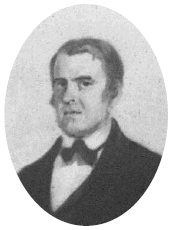
While many teachers will focus their teaching of Old Testament Gospel Doctrine lesson #5 on the story of Cain and Abel, that is only half the lesson. The other half of the lesson is the story of Enoch and his city—perhaps a more positive example for us today as we strive to live the admonition “be ye therefore perfect.” The following poem is like the story of Enoch, one of the most unusual works in its corpus. As the prefatory paragraph indicates, it came out of an LDS meeting in which Elder David W. Patten (still at least 2 years… Read More
-
•
•
166 responses
It’s hard to know the future, but I will hazard a prediction: the Ordain Women project will fail. If I understand its ambitions correctly, Ordain Women would define success as an announcement that the prophet, having followed the invitation of these faithfully agitating sisters, has gone to the Lord and has received a revelation that women are to be ordained to the priesthood. I don’t know if women will ever be ordained to the priesthood, but I would be shocked if this was to happen while any institutional breath breathed in the Ordain Women movement. There are two reasons for… Read More
-
•
•
While ‘strengthening the family’ might seem like code for a political position these days (please, no politics on this post), lesson 4 in the Joseph Fielding Smith lesson manual seems to boil the idea down to the ways in which we live together. The lesson says stronger families come from “spending time together, loving each other, and living the gospel together.” In most of our poetry, this is something assumed—background to another message the poet is trying to communicate. So in the following poem the ideas behind strengthening the family are part of another message, celebrating those who have the… Read More
-
•
•
8 responses
I’m about a third of the way through Stephen W. Webb’s Mormon Christianity: What Other Christians Can Learn From the Latter-day Saints (OUP, 2013). Webb is a Catholic professor of philosophy and theology turned writer. His Catholic perspective on LDS doctrine and his evident sympathy for the LDS approach to Christianity make this insightful outsider treatment of LDS theology quite refreshing. I will no doubt post a longer discussion of the book in a week or two, but here is a quotation highlighting some similarities between Catholic and Mormon approaches to Christianity (apart from both traditions being the target of… Read More
-
•
•
78 responses
As reported by outlets including Above the Law, well-known LDS attorney Gene Schaerr is leaving his law firm for a new post at the State of Utah. His departure e-mail describes his new role as “defending the constitutionality of traditional marriage.” This certainly seems like a worthwhile endeavor. It would be terrible if male-female marriage (which is often described as “traditional marriage”) were found unconstitutional, barring straight folks from marrying. I have good news, though. A careful perusal of the Kitchen v. Herbert opinion reveals that male-female marriage remains completely constitutional in Utah. In fact, based on anecdotal reports, male-female… Read More
-
•
•
One response
When we talk about the Fall and its roll in the plan of salvation, as Old Testament Gospel Doctrine lesson #4 does, the focus naturally (and properly) is on the effects of the Fall and its relationship with the atonement. But the Fall is also the story of a relationship between Adam, Eve and God. his makes it easier to put ourselves in the place of Adam and Eve, and in the process learn, in a very palpable way, the consequences of a separation from God and the need for a way to return to Him. In that sense, the… Read More
-
•
•
14 responses
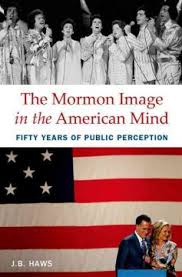
Over the holidays I read The Mormon Image in the American Mind: Fifty Years of Public Perception (OUP, 2013), by J. B. Haws, a BYU history prof. Technically, the book is a study of how the LDS Church and Mormonism in general is perceived by the American public, and the author presents survey data throughout the book to gauge the ups and downs of the various ways that Mormons and the Church are viewed. No doubt the book is required reading for every LDS Public Affairs employee. But for most readers the book also serves quite nicely as a narrative… Read More
-
•
•
47 responses
In March, the Supreme Court will hear a pair of cases on whether for-profit employers can claim a religious exemption to the Affordable Care Act’s requirement that employer health plans cover contraceptives without any out-of-pocket expense because the use of contraceptives violates their owners’ religious beliefs. In a Washington Post op ed this week, Fred Gedicks, the Guy Anderson Chair at BYU Law School (and a prior T&S guest blogger), flips the case on its head, claiming that it is actually exemptions from the “contraception mandate” that pose a threat to religious liberty. The op ed briefly summarizes a journal… Read More
-
•
•
When we talk about the plan of salvation, as Teachings of the Presidents of the Church: Joseph Fielding Smith lesson #3 does, we focus on several key elements: the pre-existence, the fall, the atonement, the resurrection and the judgment. That’s a lot of ground to cover—and often our lesson manuals cover each of those elements separately. Likewise, it is difficult to come up with a single poem that covers all of this territory. But Elder Orson F. Whitney, who served as an Apostle from 1906 to 1931, seemed to love writing poetry about the gospel and the plan of salvation,… Read More
-
•
•
3 responses
In our science-oriented world today, its hard to see the creation stories in the Bible and Pearl of Great Price as recounting actual events or having meaning beyond a simple myth explaining the origin of life. So when we teach the creation in classes like the current Old Testament Gospel Doctrine lesson 3, I believe the best option is to put the story in a gospel context, and emphasize its meaning as part of our understanding of the purpose of life, rather than historical or scientific events. Although written in the 1840s with a traditional view of the creation, the… Read More
-
•
•
47 responses
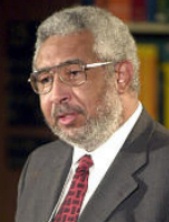
After due consideration the staff of Times and Seasons has selected Darius Gray as the 2013 Mormon of the Year, our annual designation of the Mormon who had the greatest impact or influence on Mormons and Mormonism during the year. Read More
-
•
•
66 responses
This post opens the voting for Mormon of the Year. Votes will be taken until midnight Eastern Time on Tuesday, January 7th, at which time the voting will close. The voting mechanism will attempt to restrict votes to one per person. The order of the choices is set at random, and is different each time the form is presented. THE WINNER OF THE ONLINE VOTE IS NOT NECESSARILY THE MORMON OF THE YEAR!!! Read More
-
•
•
9 responses
For the past two weeks readers have made nominations and seconded nominations for the 2013 Mormon of the Year designation. So that the status of nominations and seconds are clear, I’ve compiled the list below of those who have been nominated and seconded (and who will therefore appear on the popular vote ballot), those who have been nominated, but not seconded. Please see the original post for rules and qualifications. Read More
-
•
•
5 responses
The second lesson in the Joseph Fielding Smith manual, used in Priesthood and Relief Society lessons in the coming year, discusses the life of Jesus Christ and his role in the plan of salvation; quite a lot to cover in a single lesson. In the texts included, Smith ranges from Christ’s birth as the only begotten son of God, to his role establishing a pattern for us to follow, to how we are His sons and daughters through the atonement and through our obedience to His teachings. Fortunately, Mormon poetry, like our teachings, emphasize the role of Christ, making it… Read More
-
•
•
Mormon beliefs about the pre-existence are an important part of our understanding of our purpose in this life and the meaning of the life to come. The beliefs covered in the second lesson in the Old Testament Gospel Doctrine manual, “fore-ordination” and the “war in heaven,” are no exception. But, it is also worth remembering that what happened in the pre-existence is veiled from our memories. The details most relevant to individuals are something we don’t know. Our own specific missions aren’t clear. We are left with “shadows and whisperings.” Read More
-
•
•
7 responses
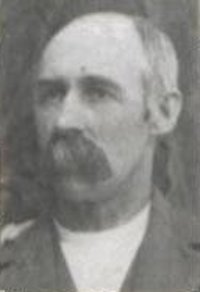
The new Joseph Fielding Smith manual for the Relief Society/Priesthood lessons presents a minor logistical problem—it has 26 lessons, which may mean teachers will have to drop two of the lessons (since two lessons each month are taught from the manual). Because of this I will post poems for the next few weeks so that teachers can choose from at least 4 of the lessons each week. The first lesson focuses on God, his attributes and nature, and our relationship with him. But while we have poems and hymns that discuss this, I though the following poem would be a… Read More
-
•
•
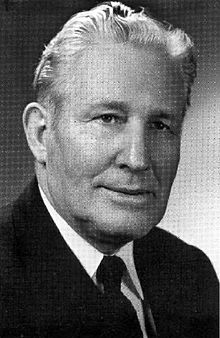
For the coming year, I’ve decided to post poetry for use in Sunday School and Priesthood/Relief Society classes two weeks ahead of when they would normally be used, instead of a week ahead as I’ve done in previous years. I’m doing this to allow teachers a bit more time to prepare and integrate the poetry into their lesson plans (if they wish to use the poetry), and because, in the case of the Priesthood/Relief Society manual, there are more lessons than can be covered in a year. Working two weeks ahead will give the teacher time to decide which lessons… Read More
-
•
•
7 responses
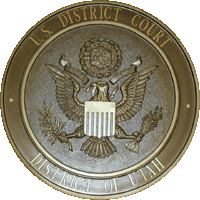
The District of Utah has had a busy week. As I’m sure you heard (and if you haven’t, you ought to read Kaimi’s post first), Utah’s ban on same-sex marriage has been struck down as unconstitutional. A week ago, in the wake of the decision that didn’t actually legalize polygamy, I looked at the potential tax consequences of that decision and, fairly anti-climatically, determined that there were none. Plenty of electrons will be spilled going over this decision but, again, I suspect that the tax consequences will be underexplored. Read More
-
•
•
7 responses

We were headed to the car. As we left the building, my wife slid her arm in mine, in part because the sidewalk was still slick after the snowstorm earlier in the week. And when we reached the curb and waited for the light to cross the street, my personal space was invaded. Read More
-
•
•
27 responses
By now you’ve heard the news. A federal judge in Utah just ruled that the state’s ban on same-sex marriage was unconstitutional. This follow on last week’s ruling, from a different judge, that portions of Utah’s polygamy statute were also unconstitutional. What does it mean? Obviously, it means the advent of gay polygamy!! It won’t stop until everyone is married to everyone else, in one giant gay-polygamous-mega-wedding. Let the festivities begin! Okay, maybe not. Let’s go through the rulings, piece by piece, to see what they say, and what their effects may be. Read More
-
•
•
11 responses
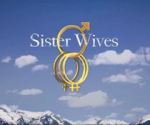
On Friday, December 13, the Judge Waddoups, a district court judge in the District of Utah, held that Utah’s criminalization of polygamy was unconstitutional. Partly, anyway. More on that in a minute. I suspect that this opinion will reverberate throughout the blogosphere and the mainstream media, with the reporting displaying various levels of accuracy. The question I suspect won’t get much play, though, is, what are the tax consequences of this decision? Read More
